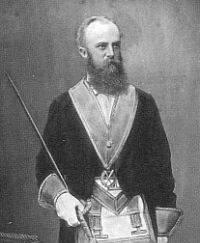
The 1840 decision by the British Government to suspend transportation of convicts to NSW followed a period of sustained agitation, especially in Sydney and Port Phillip, that reflected the changing social structure of the colony.
Subscribe now for unlimited access.
$0/
(min cost $0)
or signup to continue reading
The decision came as economic crash gripped the colony.
Emigrants whose passage had been subsidised from land sales and who had been attracted by the promise of prosperity in a new land found work hard to come by.
As the recession eased, labour shortages re-emerged, especially in country districts.
In a familiar refrain, the new home country migrants proved reluctant to leave Sydney for the rigours of up-country life.
Facing acute labour shortages, pastoralists - including those in New England - looked for solutions.
They argued for a resumption of convict transportation, but faced fierce opposition from those who had been agitating for its removal.
This dispute would feed into the creation of the first self-government movement for Northern NSW.
The pastoralists therefore looked for other options. One result was Chinese immigration, the bringing in of Chinese workers as indentured labourers, creating another thread in the history of New England.
Down in Sydney, Karl Ludwig Wilhelm Kirchner had his own solution.
Now a prosperous merchant, Kirchner was influenced by idealism and connection to his homeland, but also saw business opportunities, including a potentially profitable role as an immigration agent.
To that point, German migrants had been restricted from access to subsidised migration unless they fell into a limited number of occupational classifications that could not be filled by British immigrants.
NSW, Kirchner argued, should bring in German migrants. They were hard working, would fit in and would be prepared to go to country areas, thus solving labour problems.

He also argued that the focus should be on families rather than single men.
Kirchner’s broad arguments were accepted. He therefore began looking for employers who would be prepared to sponsor German migrants.
In August 1847, for example, he visited the Newcastle and Maitland districts seeking arrangements with land owners to sponsor German immigrants and especially vine dressers, an occupation previously identified as in short supply.
In 1848, Kirchner returned to Frankfurt as NSW emigration agent, basing himself in his mother’s house. By then, he had arrangements in place with a number of employers and needed to find the people to fill the agreements.
On the trip home, Kirchner wrote a promotional book, Australien und seine Vortheile für Auswanderer - Australia and its Advantages for Emigrants, extolling the virtues of a new life in NSW.
This was published upon his arrival in Germany to encourage interest in migrating to Australia.
He also put up posters and advertisements promoting the message in towns and villages all over the Rhine regions.
In 1849, 600 Germans (around 102 families) arrived in Sydney. This was only the beginning.
Jim Belshaw’s email is ndarala@optusnet.com.au. He blogs at http://newenglandaustralia.blogspot.com.au/ (New England life) and http://newenglandhistory.blogspot.com.au/ (New England history)

